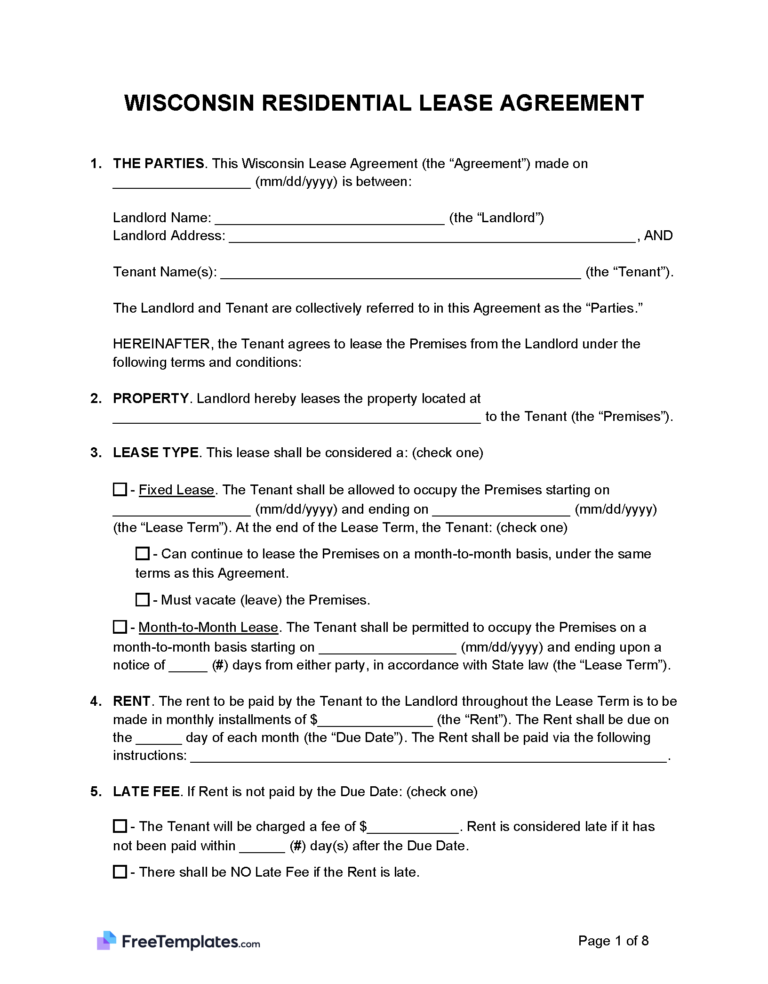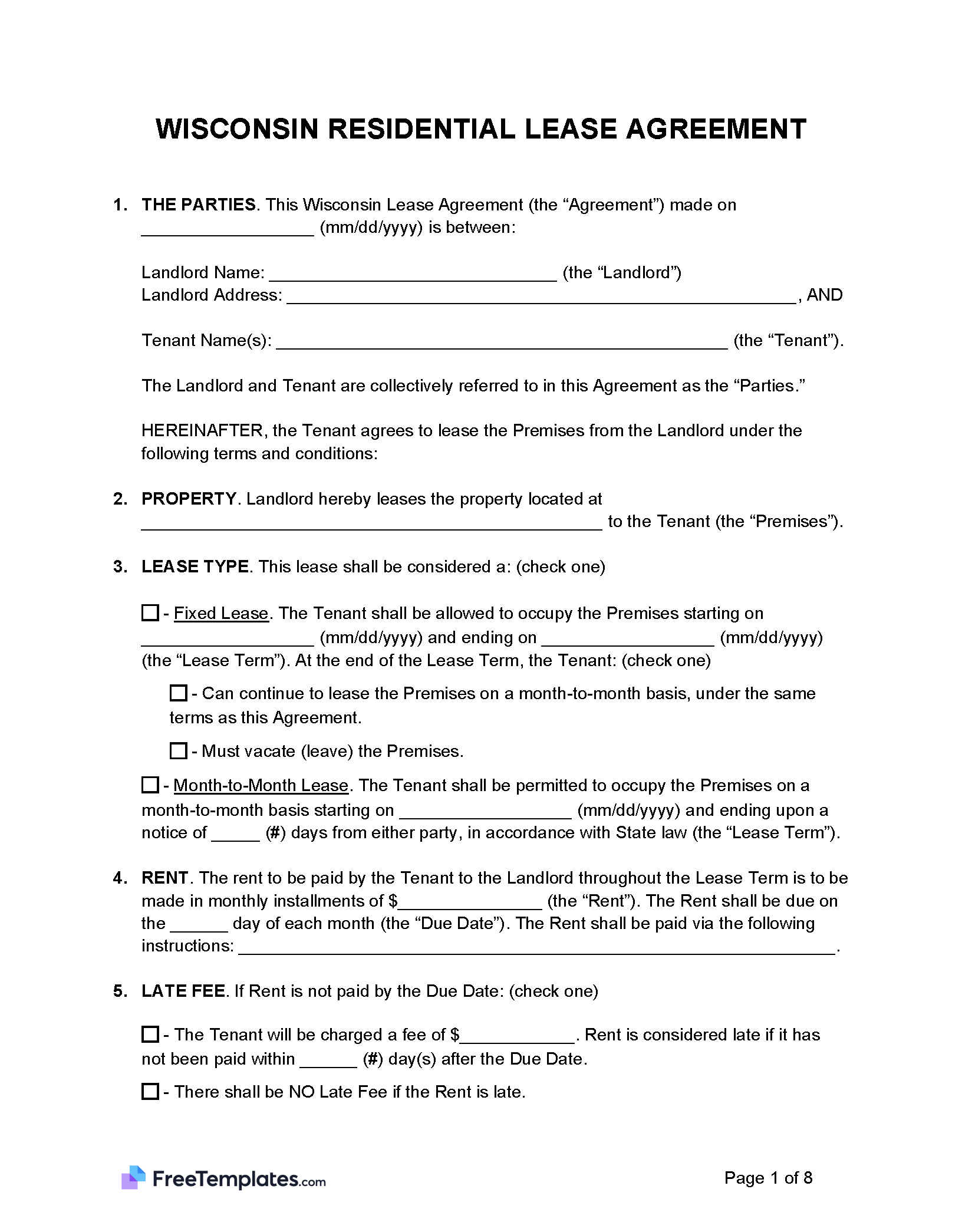By Type (6)
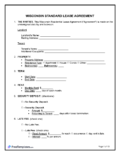 Standard Lease Agreement – A landlord and residential tenant contract for a fixed term. Standard Lease Agreement – A landlord and residential tenant contract for a fixed term.Download: PDF, MS Word, ODT |
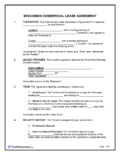 Commercial Lease Agreement – A legal document between a business and a landlord for a set amount of time. Commercial Lease Agreement – A legal document between a business and a landlord for a set amount of time.
|
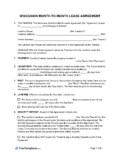 Month-to-Month Lease Agreement – A short-term rental option for landlords and tenants that renews monthly. Month-to-Month Lease Agreement – A short-term rental option for landlords and tenants that renews monthly.
|
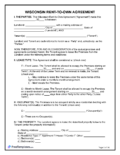 Rent-to-Own Agreement – A legally binding arrangement that allows the tenant to purchase the rental property. Rent-to-Own Agreement – A legally binding arrangement that allows the tenant to purchase the rental property.
|
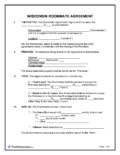 Roommate Agreement – A formal contract between individuals living in a shared space, in addition to any standard lease agreements between the tenant and the landlord. Roommate Agreement – A formal contract between individuals living in a shared space, in addition to any standard lease agreements between the tenant and the landlord.
|
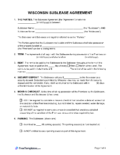 Sublease Agreement – Differing from the original agreement, the sublease allows a subtenant to rent the property to another tenant. Sublease Agreement – Differing from the original agreement, the sublease allows a subtenant to rent the property to another tenant.
|
Disclosures (6)
Lead-Based Paint Disclosure – Any property built before 1978 may contain lead-based paint; therefore, under federal law, the landlord is required to disclose any knowledge of lead-based paint to the tenant on the premises.
Landlord’s Identification – The landlord is legally required to disclose the name and address of the property owner or manager before signing a lease agreement. (§ 134.04(1)(a))
Utility Charges – Before signing the lease agreement, the landlord must state whether the rent includes the water, heat, and electricity. (§ 134.04(3))
Security Deposit Receipt – The landlord is required to provide a receipt to the tenant if they pay their security deposit with cash. If a check is used to pay for the security deposit then no receipt is mandatory. (§ 134.03(2)(b))
Notice of Domestic Abuse Addendum – The lease agreement must include legal protections if the tenant is a victim of domestic abuse, stalking, or sexual assault. The details must be written in the lease agreement or in a separate appendix. (§ 704.14)
Move-In Checklist – The tenant has a right to inspect the property and note any damages or issues with the property before moving in and signing the lease agreement. (§ 134.06(1)(a))
Security Deposit
Maximum Amount – In Wisconsin, there is no maximum amount the landlord may charge for a supercity deposit. After inspecting the property it is advised that the tenant creates a list of prior damages. (ATCP 134.06)
Returning to Tenant – The landlord must return the security deposit within 21 days of the lease’s end. (ATCP 134.06(2))
Landlord Access
General Access – A minimum of 12-hour notice is required for a landlord to enter the property legally. The landlord may enter the property for maintenance repairs, showings, or inspection but only at a reasonable time. The landlord must announce their presence before entering by knocking or ringing the doorbell. § 704.05(2)
Emergency Access – The landlord may enter the property if a health or safety emergency exists or to protect the property from damage. A 12-hour notice is not required to be given for an emergency. (§134.09(2)(b)2.)
Paying Rent
Grace Period – While there is no specific grace period on late rent, the landlord may serve the tenant with a five-day notice to quit or pay the rent. (§ 704.17(2)(a))
Maximum Late Fee – The landlord has the right to charge the tenant a late fee only if it is written and agreed upon in the lease agreement. There is no specific dollar amount for late rent. (§ 134.09(8)(a))
Returned Checks (NSF) – A bad check written for payment carries a maximum fine of $15 per bounced check in the state of Wisconsin. (§ 422.202(1)(d))
Reasons for Eviction (3)
Non-Payment of Rent – In the state of Wisconsin, if the tenant does not pay the rent on time, they can be served a 5-day or 30-day notice to quit. (§ 704.17(2)(a))
Non-Compliance – If the tenant violates any part of the lease agreement, the landlord has the right to evict that renter. Non-compliant behavior, such as not paying the rent on time, smoking in the unit if not allowed, housing a pet, or housing extra people, may result in an eviction. (§ 704.17(2)(b))
Illegal Activity – The landlord has the right to evict the renter if illegal activity is occurring on the premises and may serve a 5-day quit notice to the tenant.
